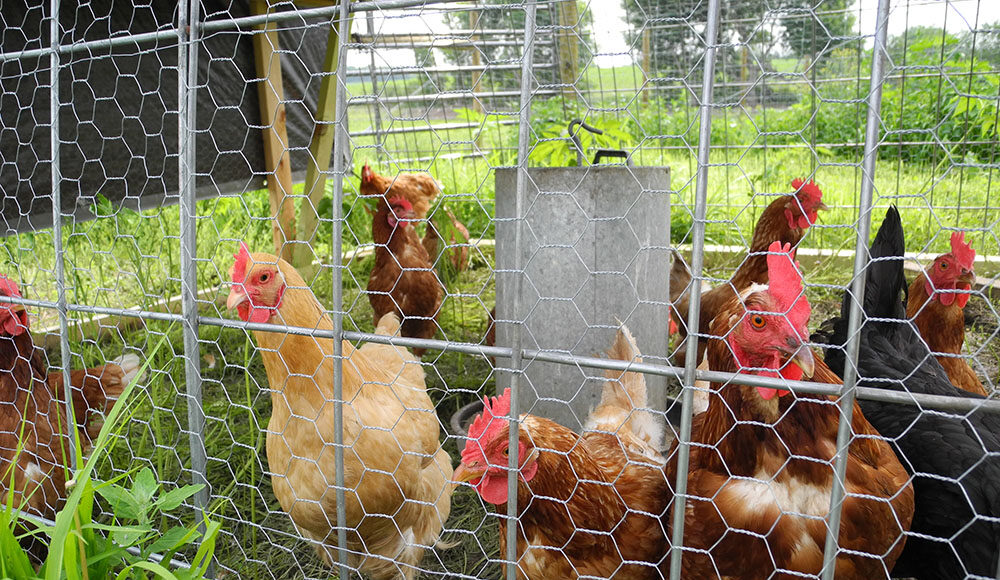Raising chickens can be both a rewarding and challenging endeavor. Chickens not only provide delightful companionship but also play a crucial role in home farming by supplying fresh eggs. However, the secret to maximizing egg production lies largely in what they eat. Understanding how diet affects egg laying is of paramount importance for any poultry keeper.
An optimal diet tailored to your chickens’ needs can significantly enhance their egg production and improve their well-being. Highlighting the impact of nutrition, let’s delve deeper into the elements that influence egg laying.

The Importance of Protein in Chicken Diets
Protein is one of the most vital nutrients for chickens engaged in frequent egg laying. It provides the necessary building blocks for feather and egg production. Insufficient protein can lead to a significant drop in egg numbers.
How Much Protein Do Chickens Need?
Chickens need a diet comprising of about 16% to 20% protein depending on their age and the production phase. Commercial chicken feeds are often optimized with precise protein levels to meet these requirements.
The Role of Calcium in Egg Production
Another key element necessary for egg laying is calcium. This mineral is crucial for the development of strong eggshells. Without sufficient calcium, chickens may lay eggs with fragile shells or even shell-less eggs.
Best Calcium Sources
Supplementing your chickens’ diet with crushed oyster shells or limestone can provide the needed calcium boost. Specially formulated feeds also often contain enough calcium to ensure healthy eggs.
Balanced Carbohydrates and Fats
Carbohydrates and fats are energy sources that sustain chickens through the long hours of egg production. However, it’s essential to maintain the right balance to prevent obesity or other health issues.
Regulating Energy Intake
Feeding your chickens with grains like corn or wheat provides them the energy necessary for their everyday activities and efficient egg production. Yet, moderation is essential to avoid overweight birds.
The Impact of Vitamins and Minerals
Vitamins and minerals play an indispensable role in maintaining a healthy flock. These nutrients participate in chemical processes in the body, influencing egg quality and production rate.
Vitamins A, D, and E, along with B-complex vitamins, are particularly important for a chicken’s overall health and productivity. Discover more about egg nutrition here.
Significance of Water in Chickens’ Diet
Water is the most overlooked yet crucial component of a chicken’s diet. Without adequate hydration, even the best nutrition can’t ensure consistent egg laying.
Ensuring Optimum Hydration
Continuous access to clean water is non-negotiable. Clean water not only maintains egg production but also guarantees general health and assists in digestion.
Common Mistakes in Feeding Chickens
Ensuring that your chickens have an optimal diet to promote egg laying can be tricky. It’s essential to steer clear of certain common pitfalls that can hinder egg production.
Overfeeding Treats
Many chicken keepers indulge their birds with excessive treats like corn and grains. While these are nutritious in moderate quantities, excessive consumption can lead to obesity, which negatively affects laying patterns.
Ignoring Seasonal Needs
As seasons change, so do the nutritional needs of chickens. In winter, when natural food sources are scarce and energy is needed to combat the cold, more energy-rich foods are necessary to sustain egg production. Visit Winter Egg Production for more insights.
Conclusion
Attention to a comprehensive nutritional plan isn’t just about maximizing egg production; it’s about ensuring the long-term health and happiness of your entire flock. By understanding how diet affects egg laying, chicken lovers can provide everything their feathered friends need for a thriving home farm.

FAQs
What is the best diet to increase egg production?
To boost egg production, ensure your chickens have a diet rich in protein, with adequate amounts of calcium, carbohydrates, and essential vitamins. It’s crucial to maintain a balanced diet catered to chickens’ specific needs.
Can chickens lay eggs without a proper diet?
While chickens may still lay eggs with a suboptimal diet, the egg quality and quantity may be compromised. A well-rounded diet is essential for consistent and high-quality egg laying.
How can I balance calcium and phosphorus in a chicken’s diet?
Providing supplementary crushed oyster shells or commercial balanced feeds can ensure appropriate calcium intake. Mixing feeds with natural sources of phosphorus like seeds or grains can maintain the right balance.
This article contains affiliate links. We may earn a commission at no extra cost to you.










